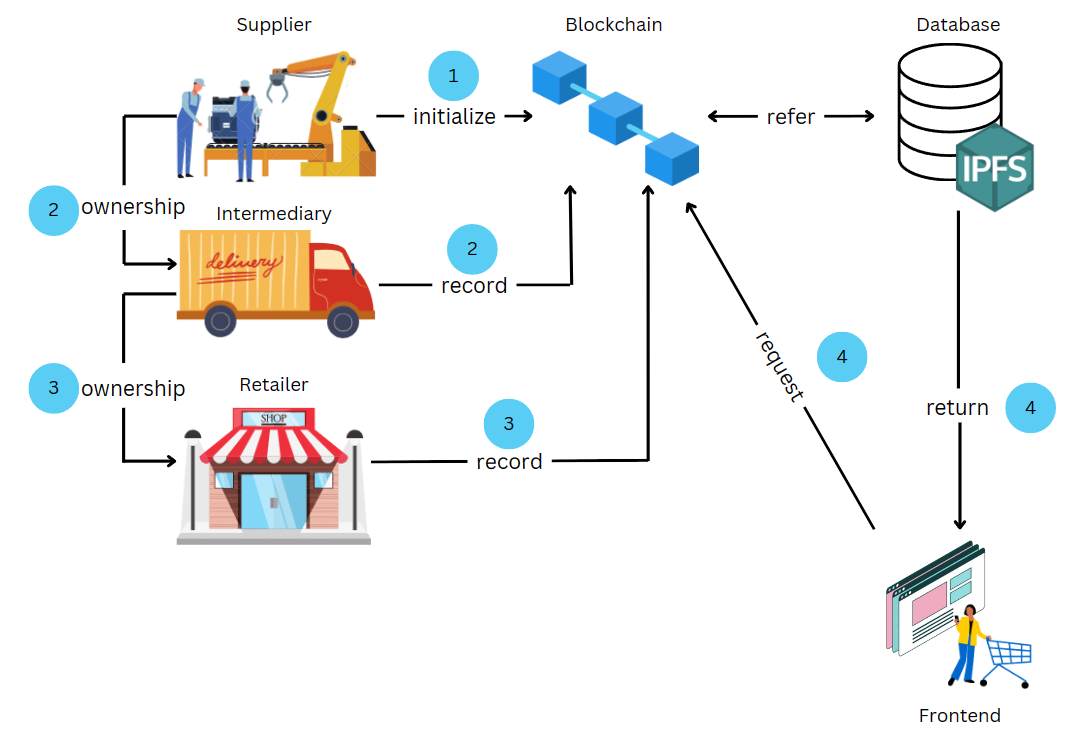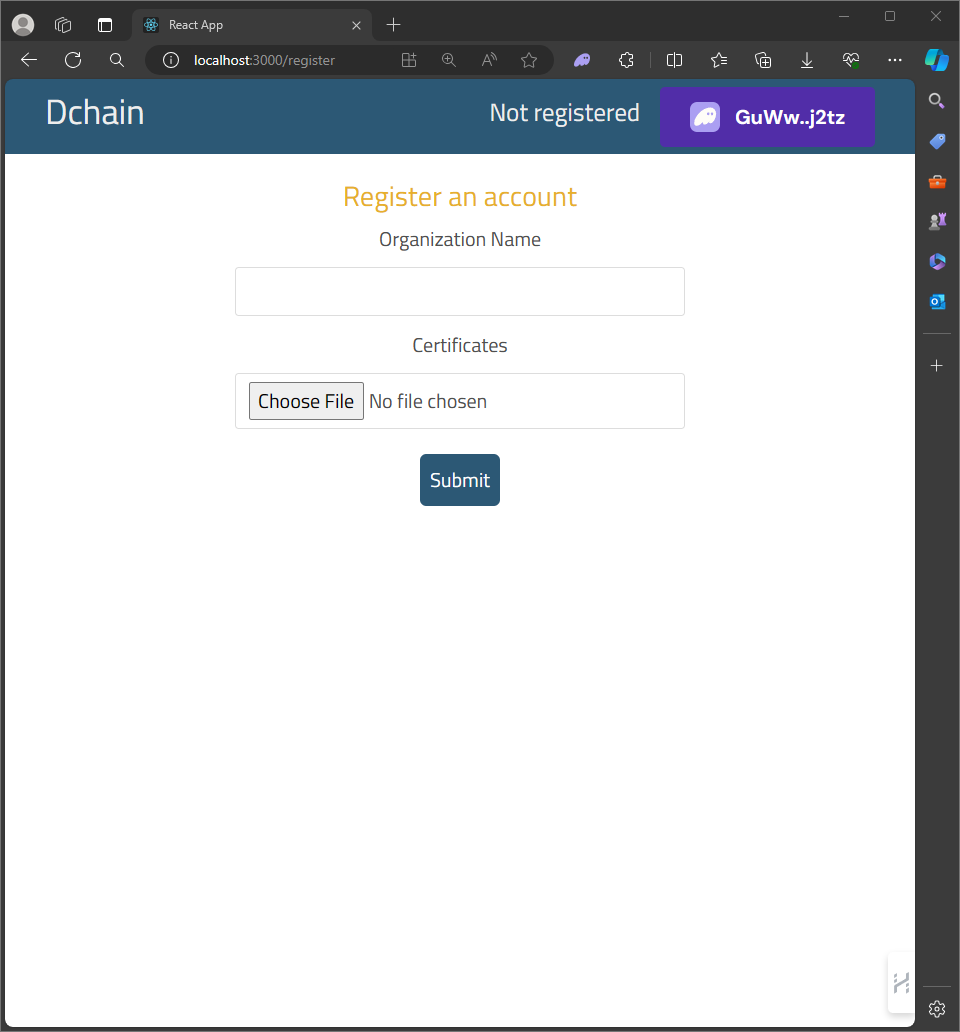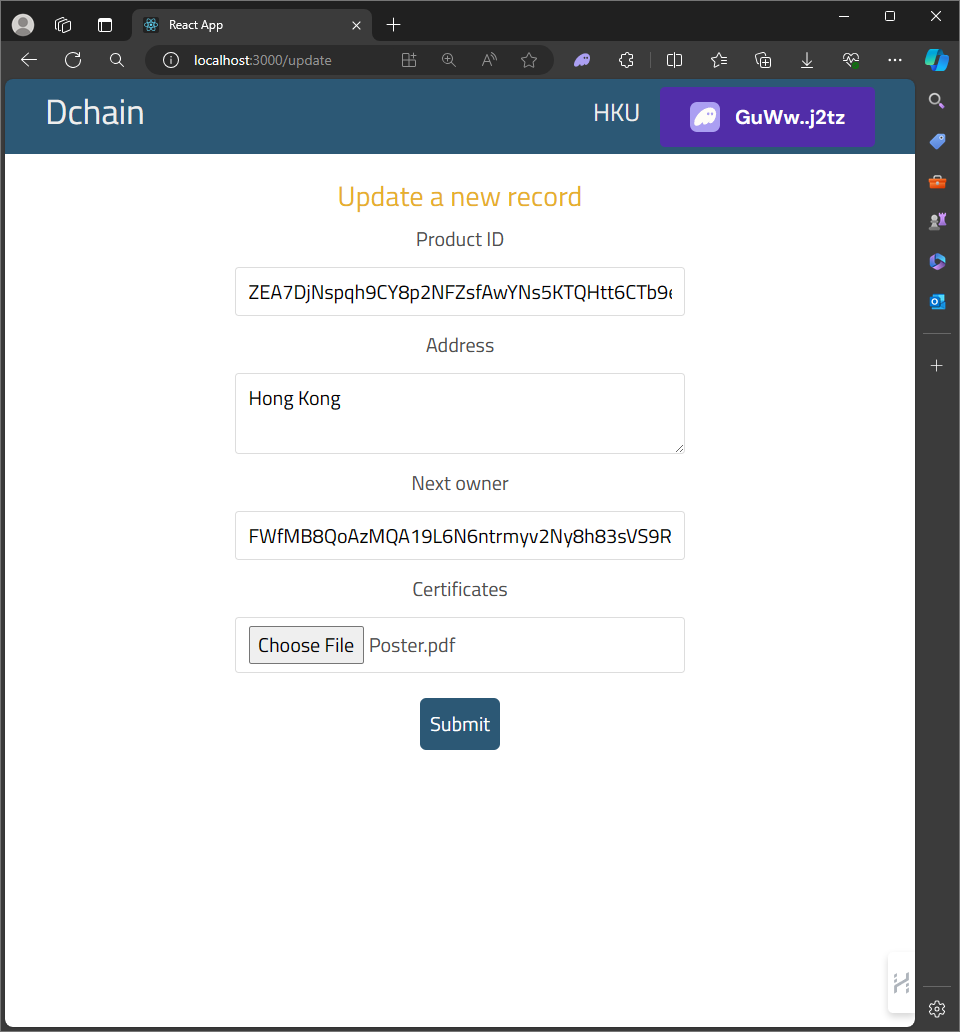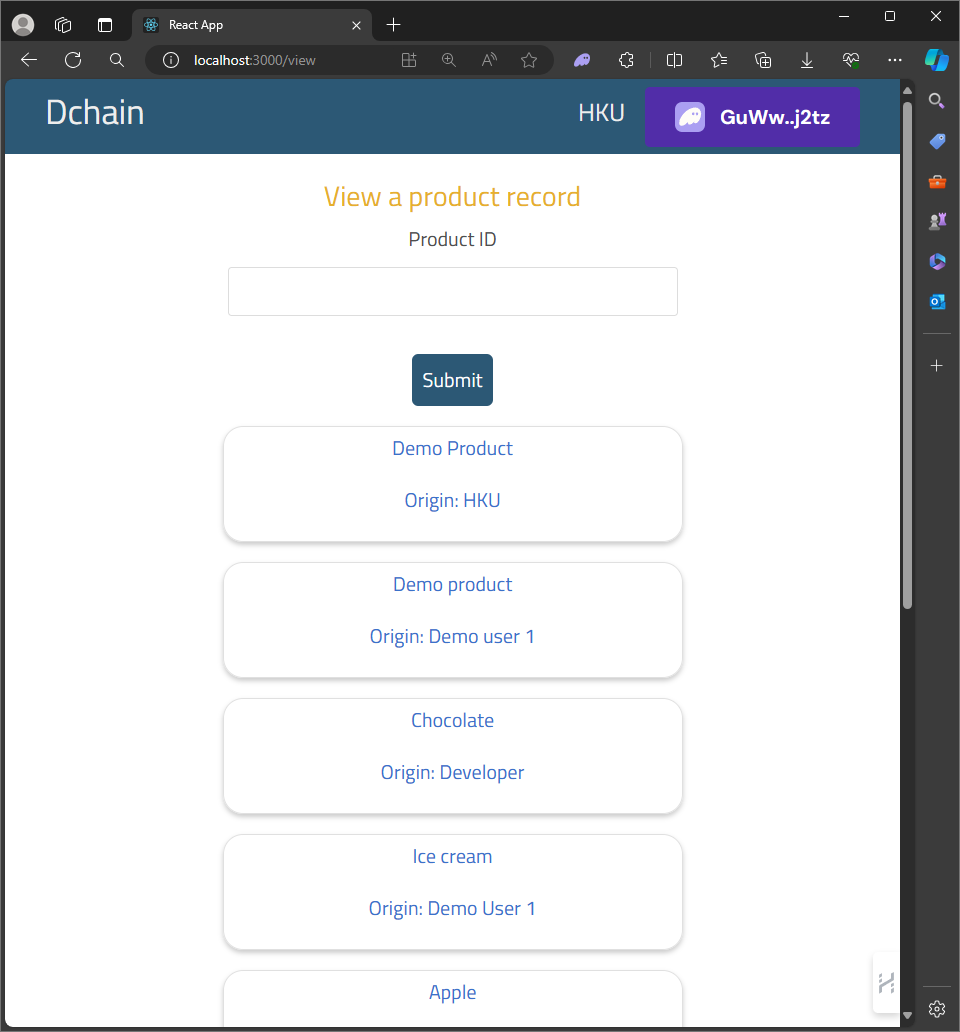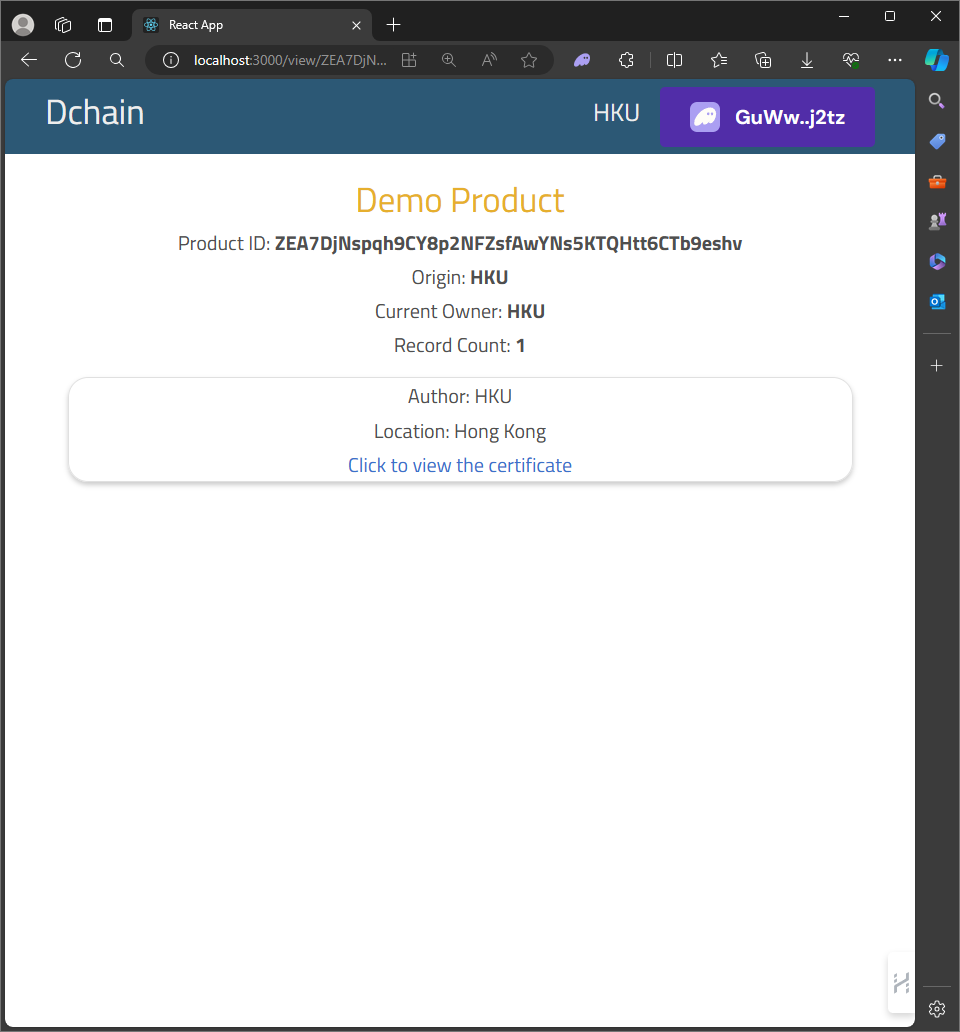Blockchain in Supply Chain
Analyzing the Pros and Cons of Blockchain in Logistics and Demonstrating a System

Objective
This project aims to thoroughly analyze the advantages and disadvantages of implementing blockchain technology in supply chain management. Moreover, it seeks to develop a decentralized blockchain solution specifically designed for recording and managing crucial product information across the entire supply chain.
What We Do
Methodology
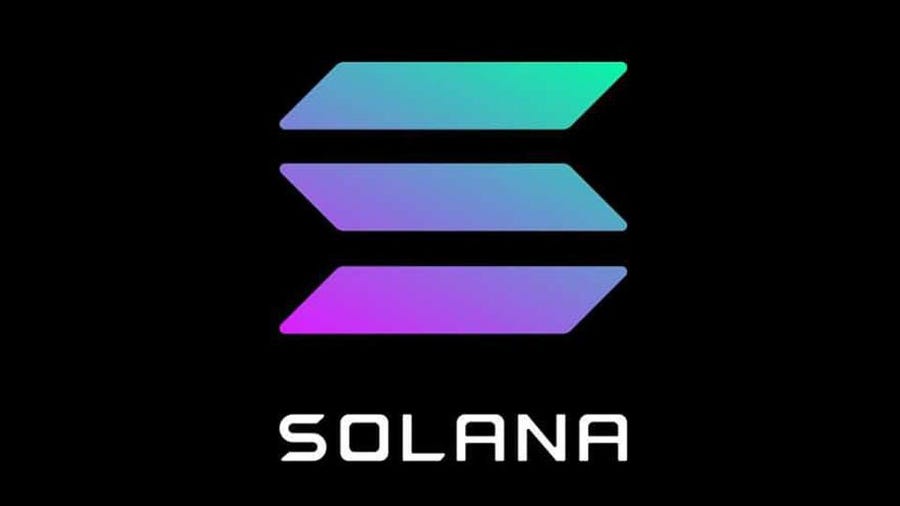

IPFS

